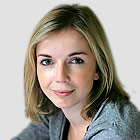University College London has launched an inquiry into its historical links with eugenics, following pressure from students and staff.
It emerged in January that conferences on eugenics and intelligence had been run secretly at the university for at least three years by James Thompson, an honorary senior lecturer at UCL. Speakers included white supremacists and a researcher who has previously advocated child rape.
Toby Young, the head of the government-backed New Schools Network, stepped down as director of the new Office for Students shortly after it was revealed that he had attended the last of these conferences in May 2017.
The university, which was unaware of the existence of these meetings, has now severed all links with Thompson, as well as tightening up its room-booking systems.
Thompson declined to comment this week, but wrote in a recent blog that he had been forced to keep the UCL meetings secret because speakers were worried that discussions about “group differences” could face “hostile interruptions and damage their careers”. He also argued that “scientific truths” about racial difference could not be deemed racist.
But UCL’s links with eugenics started long before these conferences. Sir Francis Galton, the Victorian scientist who is known as the father of eugenics, left his personal collection and archive to the university, as well as an endowment that funded the country’s first professorial chair of eugenics.
The new inquiry will question whether buildings should still be named after Galton and other leading eugenicists.
UCL’s students’ union wants Galton’s name stripped from a lecture theatre and a laboratory. It is campaigning for all of the university’s teaching materials to be “decolonised”.
Mahmud Rahman, the union’s democracy, operations and community officer, welcomed the inquiry and said: “UCL’s history in relation to eugenics is deeply troubling for us and our members.”
UCL’s president, Prof Michael Arthur, said the university had decided to examine its historical links to eugenics because the issue “causes considerable concern among many members of our community”.
He added: “We both hear and recognise the sensitivities around eugenics – particularly surrounding the work of Francis Galton – and we look forward to receiving the panel’s recommendations.”
But academics outside UCL stressed that the inquiry must not be used as a sticking plaster to avoid addressing bigger issues about racial equality on campus.
Kalwant Bhopal, professor of education and social justice at Birmingham University, said: “I think it’s hugely important for universities to acknowledge their past actions, but it must lead to some real change, rather than simply being rhetoric.”
Pratik Chakrabarti, professor of the history of science, technology and medicine at Manchester University, said: “I feel just having a go at Galton or the eugenic past of UCL is not terribly effective, unless we link these questions to what is happening with the great class and race divide in our society.”
Meanwhile, some scientists are horrified that Galton, whose other contributions to science included creating psychometric testing and the statistical concept of correlation, might be erased from UCL.
Niall McCrae, a senior lecturer in mental health nursing at King’s College London, said: “Galton was one of the greatest British scientists of all time, who put psychology on a proper scientific footing. You’ve got to understand the figure in the context of the time in which he was working. To link him with the Nazis is an horrific sentimentalist slur.”
He added: “Nowadays in universities there is a culture of completely overturning people who were once celebrated.”
Iyiola Solanke, professor of EU law and social justice at Leeds University, will lead the inquiry. It will report next summer.











